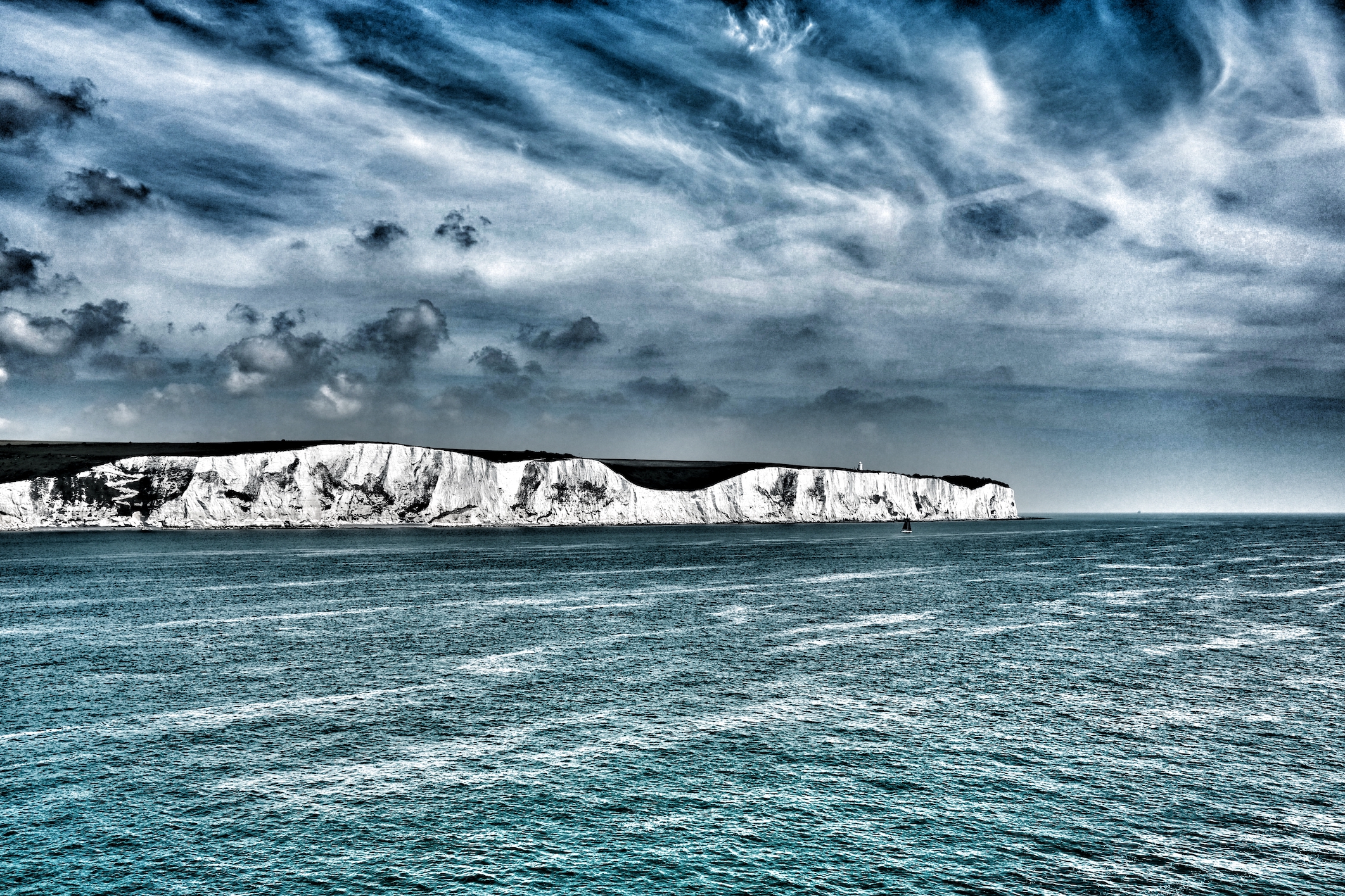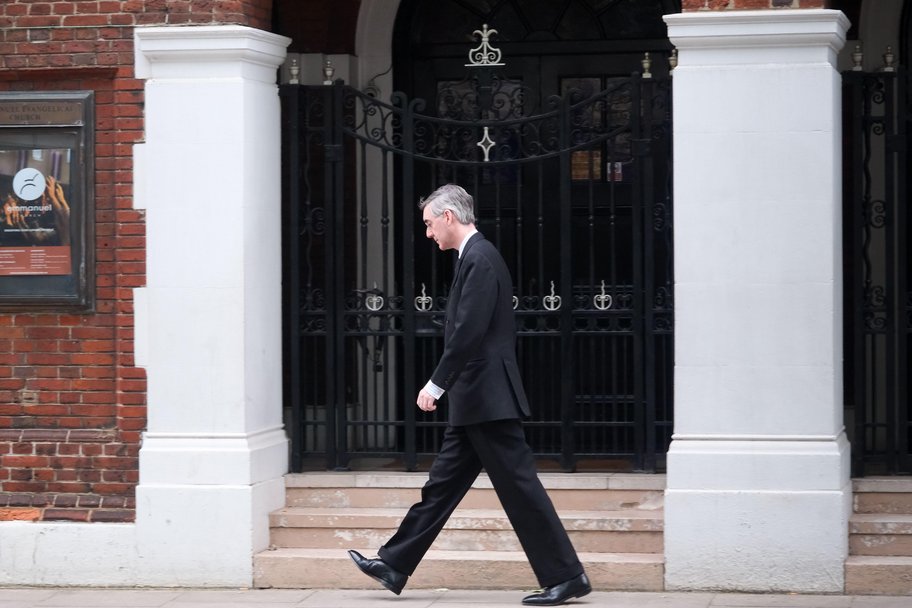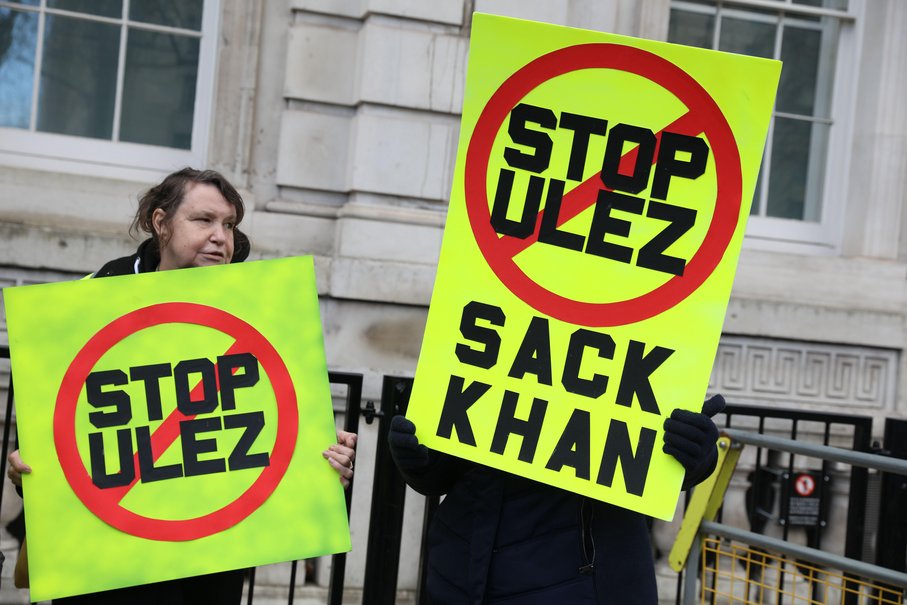Migrant hotels are anything but ‘luxurious’ - and barges are not the answer
Exclusive analysis by The Lead has found far-right groups have conducted at least 66 hotel ‘visits’, protests, and banner drops – filming and intimidating migrant people, sharing disinformation about refugee rights, and demonising children.
This week the Government moved fifteen men onto the Bibby Stockholm, a barge sitting off the coast of Dorset, as part of its plan to reduce the number of migrant people being held in hotel accommodation – sometimes for months on end.
The decision to house people seeking asylum on the barge, which is designed to accommodate up to 500, has drawn criticism from migrant rights groups, while the Labour Party’s Stephen Kinnock has said if Labour wins the next election it will “inherit a mess” on asylum policy and will “move as quickly as possible to get people out of hotels and off the barges”.
In contrast, Home Office minister Sarah Dines described the decision to house migrant people on the barge as allowing the Government to stop spending “£6 million a night of taxpayers’ money on hotels which to some extent are luxurious” and instead offer “more basic accommodation to stop the pull factor.”
But far from offering luxury and a ‘pull factor’, people seeking asylum in hotels face hostile behaviour from staff, poor food, a lack of privacy – and attacks by far-right activists.
Mariam (not her real name) was housed in a hotel based in a northern city. She claimed asylum after her home country became unsafe. Due to continuing instability in her country, where many of her family members still live, The Lead has chosen not to name it.
She tells The Lead her son “liked playing with his friends in the hotel.” But food and privacy was a problem. “The food was just nuggets and fries,” she says. “I was worried about his weight. He lost some weight, and then he didn't gain any. When you eat the same food every day, if you're a child, you just get bored. So we relied on milk and cereal to get him the calories that he needed, but he still didn't gain weight until we left the hotel.”
“You are already in a state where you are feeling unsafe. You are coming from a situation where it takes you a long time to feel safe again.”
Freedom of information data revealed that in 2022, there were more than 1,400 complaints made to the Home Office’s Migrant Help service where the word ‘hotel’ was mentioned in the complaints log. Of these, 226 included mention of ‘food.’
The Independent Chief Inspector of Borders and Immigration had previously raised concerns that families were suffering from malnutrition and diet-related illnesses linked to poor hotel food.
The hotel housing Mariam and her son was also targeted by far-right groups.
Hotel ‘visits’ by far-right groups such as Britain First hit the headlines earlier this year, after a riot broke out in Knowsley outside a hotel housing migrant people. Since then, exclusive analysis of social media channels by The Lead has found Britain First, Patriotic Alternative, and another far-right group known as Yorkshire Rose, have conducted at least sixty-six hotel ‘visits’, protests, flyering events and banner drops – filming and intimidating migrant people, sharing disinformation about refugee rights, and even demonising children.
Mariam and her son know first-hand the panic and anxiety that these protests cause families housed in hotels.
“I was standing outside chatting to one of the hotel employees when security came running,” Mariam recalls. “He told us to get inside quickly because there is a protest and they are filming. Another time the staff closed the door and told us not to leave the hotel.”
The protests shook her deeply, triggering traumatic memories of having to flee her home country. “You are already in a state where you are feeling unsafe,” she explains. “You are coming from a situation where it takes you a long time to feel safe again.”
The anti-migrant, anti-asylum actions left Mariam feeling “unwanted.”
“I feel like I am a burden. It sets you up on a cycle of thinking: am I taking up their resources? I can see the media portraying us as an issue and it’s understandable that when people hear these messages again and again, that they believe it.”
The resentment stirred up by the far-right, an anti-migrant media, and an increasingly hard-right Conservative Party is something, Mariam says, she has to accept. “Because I am so grateful for the benefits I get as an asylum seeker,” she adds.
The anti-migrant feeling spills out beyond the protests, and into street-based racism in communities where people seeking asylum are being held in hotel accommodation.
"Living in this type of accommodation could be profoundly retraumatising... being on the water will be a constant reminder of the deadly journeys they made to reach safety.”
After experiencing a racist incident in the local area, Amir (not his real name) said it “took me a week before I could leave my house again.” He was not alone. Other asylum seekers described how racist incidents “triggered the trauma you are trying to deal with, and you don’t feel safe.” One individual revealed, “I was at the point of healing and these things set me back. They made me feel low and bad.”
A parent shared the struggle of wanting to protect their children, but also wanting them to know they did not have to accept racism. “I have had to teach my kids not to respond to stuff but then I realised it affects them and I need to stand up and say something,” she explains. “But that does not feel safe.”
All Amir, Mariam and the other individuals who've spoken out about their experiences are being supported by the charity Freedom from Torture, which continues to campaign against the use of hotel accommodation and the decison to move vulnerable people out of hotels and onto the Bibby Stockholm.
While hotel accommodation is linked to poor mental and physical wellbeing, and the target of racist protests, migrant rights organisations are now concerned that the health impacts on often already traumatised migrant people being held at sea could be severe.
“Every day in our therapy rooms, survivors of torture describe the horror, isolation, and hopelessness they feel when trapped in housing that is unsafe,” Ann Salter, Clinical Services Manager at Freedom from Torture, says in response to the move. “Living in this type of accommodation could be profoundly retraumatising for them. Cramped conditions can be reminiscent of the places in which they were tortured, and being on the water will be a constant reminder of the deadly journeys they made to reach safety.”
She adds: “The Government must abandon this plan and instead house survivors in our communities, where they have proper access to healthcare, and a chance to rebuild their lives.”
The Lead is now on Substack.
Become a Member, and get our most groundbreaking content first. Become a Founder, and join the newsroom’s internal conversation - meet the writers, the editors and more.





